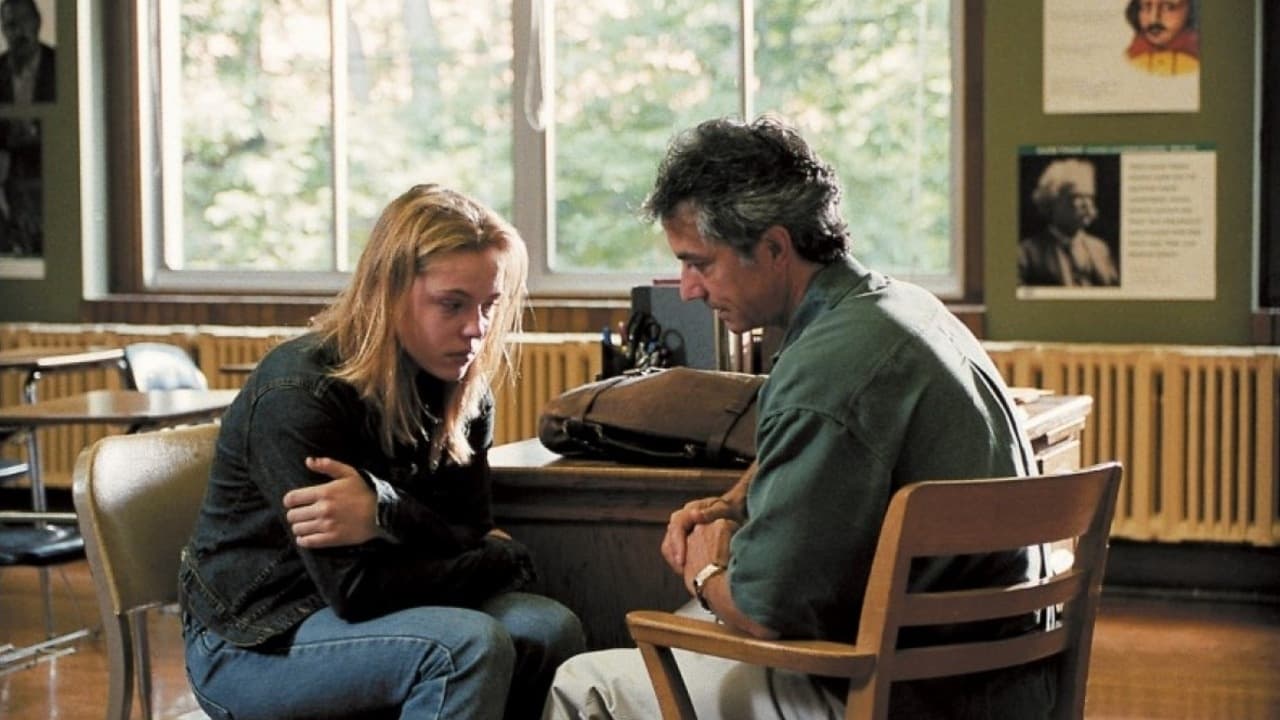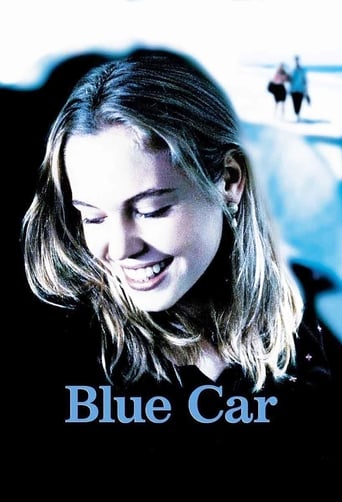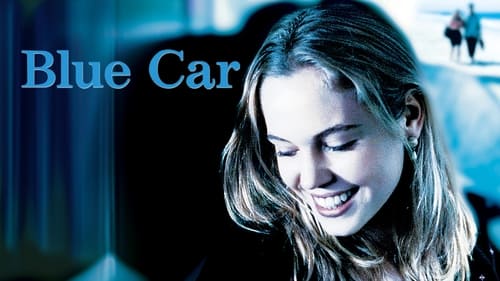



Excellent film with a gripping story!
Amateur movie with Big budget
The acting in this movie is really good.
The movie is made so realistic it has a lot of that WoW feeling at the right moments and never tooo over the top. the suspense is done so well and the emotion is felt. Very well put together with the music and all.
View MoreKaren Moncrieff's understated film, 'Blue Car', tells the story of a mildly disaffected teenager; as she drifts through the world, never quite belonging, I was reminded of 'Ghost World', although this movie lacks that film's more stylised feel. The story has one Hollywood moment (albeit in a muted form) when she reads a hastily written, highly personal poem in a public competition; in fact, the shards of poetry present in this film are good enough to bear the symbolic weight put upon them by the plot. Yet I was left with the feeling that this is somehow half a story, and that, by underplaying everything, the director can't do much more than tell us her lead character is sad - in 'Ghost World', the vaguely surreal backdrop provided some contrast that is lacking here. The performances aren't bad, however, and the soundtrack features some pretty but predictable folky-style songs.
View MoreBlue Car is a political film disguised as a character study. It reaffirms our prejudices without clarifying the characters' underlying motivations. (Spoilers) Why are we not surprised at Auster's lack of restraint? Do we assume that any man given the opportunity will use it to full advantage? This is actually the theme of a film made in 1962, Term of Trial, staring Laurence Olivier as the teacher. Term of Trial does not explore the indiscretion, rather it examines our expectation of it. There are thousands of teachers in close proximity of young nubile teens, yet indiscretion is not rampant. You might argue that this is a portrait of just one teacher, but why are we not provided any examination of Auster's motives or character flaws? Auster is not a predator. There is no indication that he has "ruined" other students. Other than helping Meghan gain the opportunity to compete he makes no other arrangements to seduce her, their encounter is by chance. Then what is it that motivates Auster to make the wrong choice? I would suggest that it is not Auster's choice, rather it's the Moncrieff's choice (and Ebert's bias). In the commentary, Moncrieff discusses how uncomfortable the actors felt with the scene and the location. Given what we know about Auster, I believe that he would have felt the same. Realist films should strive for psychological consistency, not moralistic formalism. I love allegories like the Piano, in which the characters are abstractions, but I don't appreciate Realist presentations that provide us with false or underdeveloped characters who simply reinforce our existing prejudices. Not to mention the film's cover photo, which promotes the same type of sexual exploitation we are expected to find abhorrent. If you are interested in Feminist films with complex characters that are more than mere moral contrivances try Lizzie Borden's Love Crimes, but be forewarned that it's more likely to offend your social values than Blue Car.
View More"Blue Car" has been almost unanimously well received by reviewers. Despite its obvious attributes, I ultimately found it somewhat unsatisfying.Karen Moncrieff displays real talent as far as directing goes. Under her direction David Straithairn and Agnes Bruckner deliver first rate performances. The film falters not due to the actors or the director but rather to Moncrieff's writing abilities.While the female characters are fully fleshed out with depth and perception the male roles are underdeveloped and all veer heavily towards portraying men as untrustworthy and devious. The minor roles (as far as screen time goes) of the father, the mother's friend, and the Meg's friend's brother all underlie the untrustworthiness of the male sex. The real problem of the movie however is the central role of Auster, who ultimately reiterates Moncrieff's view of the male sex.I would have less problem with this viewpoint had it been dealt with in a subtle and intelligent manner. Auster's transformation is far too sudden implying an inherent sinister perversion rather than a conflicted sensitive soul. The letdown in his credibility as a character is like a whodunit which has not been fair in building up to its solution. The film is severely weakened by all this, despite Straithairn's best efforts. Still there is much to be gained from "Blue Car" in particular Agnes Bruckner's performance which places her up there with the best young screen actresses of her generation.
View MoreI had looked forward to viewing this film. I am a fan of the indie movement, I like bold and daring and original films, I love good acting. As far as the latter was concerned, I was suitably impressed. Every performance in the film is noteworthy and difficult.However, I had a deeper concern as the film went on. As a male English teacher myself, I began to resent the implication that every teacher who shows an interest in a students work or well-being is a predator. I care deeply about my students and give them my time, before, during, and after school; I do not have sex with them. I don't care to have this film taking on the point of view that I am ready to seduce my students.I then began to see deeper problems than just the depiction of the teacher; I began to see it as a condemnation of all males. The teacher is a pervert,his son is randy, the male boss is insensitive, Georgia's brother is a criminal, the mother's friend and the father are both ineffectual. To further this thesis, one only need look at the deleted scenes on the DVD -- Ohmigod, there WAS a sensitive, positive male character, but the director couldn't have THAT: his scenes ended up on the cutting-room floor.I realize young women need to be cautioned about predatory males; I know there is a lot of pain and suffering out there. But let's be real here: this is a horribly, one-sided, negative attack on men in general.
View More